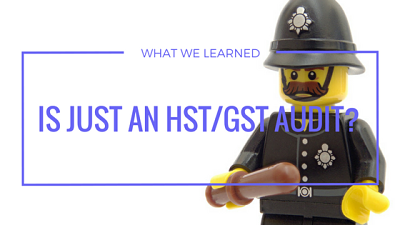As the real estate market cools down quite a lot, flipping houses seems becoming so distant to us. This may be true but the pace that the Canada Revenue Agency conducts its audits on individual cases is not slowing down.Recently heard about one case that one taxpayer gave up and decided to pay back the CRA significant amount of tax based on the reassessment.
Here are some highlights of the case:
- Taxpayer bought an old house with a decent size of lot and rebuilt a new house
- Owned by taxpayer (99%) and the son (1%)
- Taxpayer used to be a HST/GST registrant
- Financed by private loan with high interest rate
- Taxpayer stated the son lived in the new house
- Taxpayer stated inconsistently the purpose of building/selling the new house
- Taxpayer/the son sold the property in 2 years after the rebuilt
The CRA has come to conduct an audit with this taxpayer 4 years after the property was sold. And due to the facts provided by the taxpayer, the CRA drilled down more detailed information about the property and finally put through GST adjustment plus penalty due from false statement.
A few things that we should learn from this case:
Close the business related accounts with the CRA if you don’t make any taxable supplies
If you don’t close the account, the CRA will continuously have your account monitored and assume the business is active. More importantly, you are at risk as you are exposed to higher chances that you/your accounts being selected for an audit due to the information collected from the accounts by the CRA. A lot of businesses are too busy to handle the administrative work like closing accounts/filing last HST/GST returns and leave them open for too long. And when it attracts the CRA’s attention, the process is never that smooth. And it may cost a lot of money as well.
The deadline for claiming GST/HST ITCs
The above case was being assessed as “constituted an adventure or concern in the nature of trade with reasonable expectation of profit when you commenced the activity”. As a result, the taxpayer is considered as “a builder” based on subsection 123(1) of the Excise Tax Act and the property sold is deemed to be “ a supply in the course of a business or adventure or concern in the nature of trade and is therefore taxable”. Based on the facts, the CRA assessed the unreported HST/GST collectible on the sale of newly built residential house. It is a bit tricky about the timing. The CRA picked this case 4 years after the property is sold and leave no time to the taxpayer to claim ITCs if he was deemed to be “a builder”. As you know, HST/GST registrants may recover the GST/HST paid by claiming ITCs. But the Excise Tax Act limits registrants to claim any unclaimed ITCS within four years after the end of the reporting period in which the ITC could have first been claimed. By the time the taxpayer realized the impact, it was too late to take action.
Inconsistent in telling the stories to the CRA
In many court cases, the Judge will assess the credibility of the defendant. Similarly, the CRA will assess consistency in taxpayer’s explanation as well. Once you take a gamble in your statements, you need to be clear in what will be the potential impact. If you have been assessed a gross negligence penalty, the cost to fight with the CRA will be significant. In this case, the CRA imposed another 25% of the assessed amount.
Here is what the ACT says:
“Every person who knowingly, or under circumstances amounting to gross negligence, makes or participates in, assents to or acquiesces in the making of a false statement or omission in a return, application, form, certificate, statement, invoice or answer made in respect of a reporting period or transaction is liable to a penalty of the greater of $250 and 25% of the total …”
The CRA audit may become a can of worms and you have to be prepared
It is always a hope that the CRA will stop where they left on the case. But in the case, the CRA has indicated the financing of the property was beyond the taxpayer’s means and was not sustainable. Even though there is no further action from the CRA, the investigation may be expanded to individual’s income tax and other business accounts as well.
I like to close today’s topic by suggesting individuals/businesses take the time to assess their options in advance or speak to their accounting professional to get an idea before speaking to the CRA.

Recent Comments